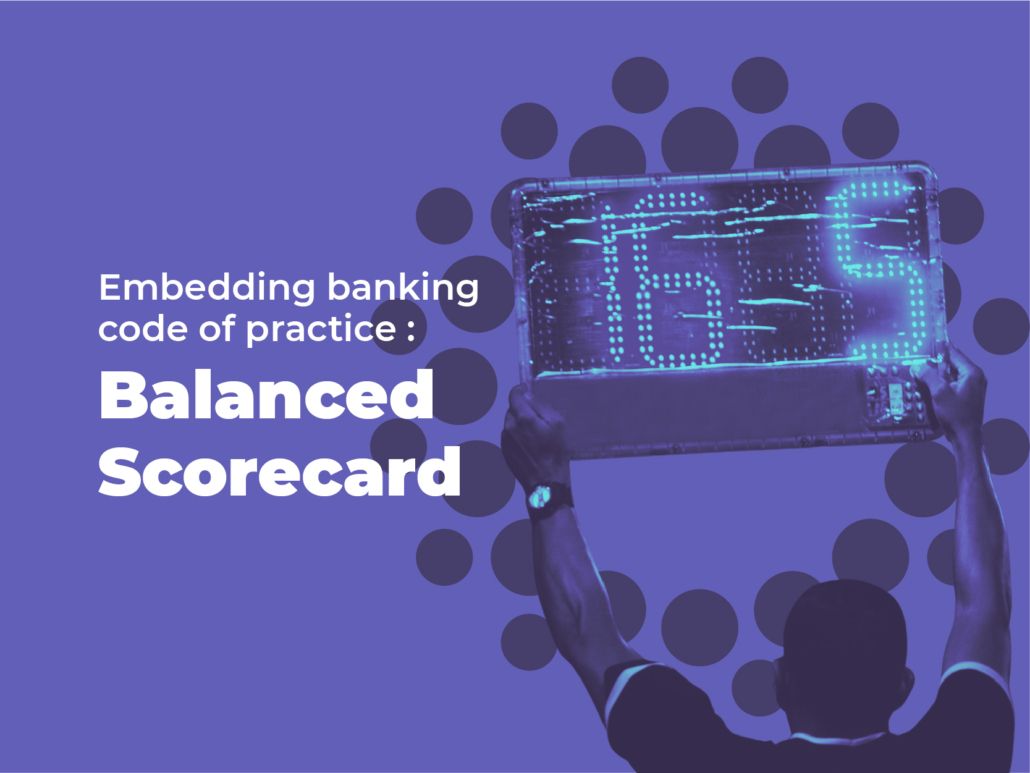Future of Financial Advice (FOFA) reforms

The Australian Bankers’ Association (ABA) undertook an independent Review called “Sedgwick report” for product sales commissions and product-based payments in retail banking in Australia. The review was intended to build on the Future of Financial Advice (FOFA) reforms and identify options for strengthening the alignment of retail bank incentives, commissions and bonus payments (variable reward payments), practices and good customer outcomes.
The balanced scorecard was one of the key recommendations with the inclusion of variable pay components for individuals suggesting a range of performance criteria, not just financial measures, to ensure staff will be less focused on short-term sales/profits and, therefore, misconduct will be reduced.
Incorporating conduct risk in a Balanced scorecard
The balanced scorecard typically includes financial measures that tell the results of actions already taken. And it complements the financial measures with operational measures on customer satisfaction, operational risk, employee conduct.
Compensation tools play an important role in reducing misconduct risk by providing both incentives and performance assessment mechanisms that can help to promote good behaviour. Compensation must be adjusted for all types of risk, and not just be based on profit, and both quantitative measures and human judgement should play a role in determining risk adjustments. Performance measurement should include a firm’s risk appetite, assessed as part of risk-adjusting the overall variable pay pool/funding and/or as part of an individual’s performance assessment.
Risk and compliance should be incorporated into performance assessments at both the corporate and individual levels. At the individual level, metrics should include appropriate customer satisfaction, compliance adherence, quality of telephone calls, individual behaviour. The corporate variable pay pool is typically based on risk-adjusted profit and considering a scorecard of measures (capturing, for example, customer and risk management within the risk appetite).
So it is important not only to be able to define what conduct risk means for each business unit but also to measure it.
Sedgwick report can be downloaded here (https://www.retailbankingremreview.com.au/)
To learn more on conduct risk measurement strategy, drop an email on sales@cognitiveview.com
